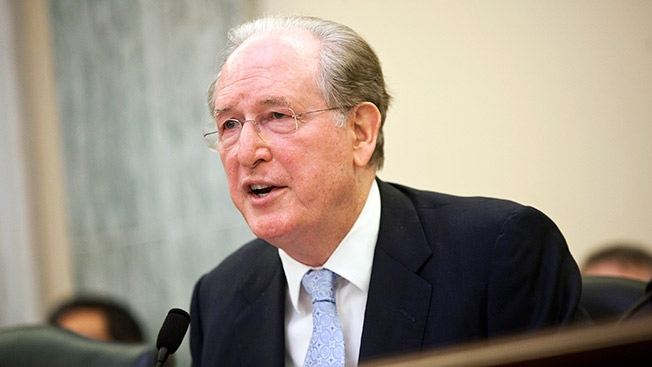
Trying to determine where data brokers get personal information about consumers, Sen. Jay Rockefeller (D-W.Va.) queried 12 personal finance, health, and family-focused websites that collect and share visitors' information from surveys, sweepstakes and questionnaires.
The sites queried were: Condé Nast's self.com, About.com, Time Inc.'s health.com, bankrate.com, realage.com, cafemom.com, The Motley Fool's fool.com, Young Money's financeyoungmoney.com, American Media Inc.'s mensfitness.com, ValueClick Brands' investopedia.com, ehealthforum.com and babycenter.com.
Rockefeller wants to know things like if the sites collect health, financial or family information from consumers; if that data is personally identifiable and if so, is it shared with third parties; if they let third parties directly collect such data through the sites.
The senator decided to reach out to the companies after the commerce committee's year-long investigation into data brokers ran into a brick wall. Several of the nine data broker companies that were investigated refused to disclose the names of the consumer-facing websites they turn to for personal consumer information.
As consumer-facing websites become popular places for people seeking personal health, family and financial information, they are also becoming a goldmine for data brokers.
"One respondent company estimated that 'there are over 250,000 websites who state in their privacy policy that they share data with other companies for marketing and/or risk mitigation purposes,'" Rockefeller wrote in the letter.
Consumers often don't know their personal information is being collected, since that fact is buried in the small print of the privacy policy. How that information gets used is even more of a mystery.
One way data brokers use the information is to group consumers into categories, like "rural and barely making it" or "ethnic second-city strugglers," in order to sell targeting groups to marketers.
"While some consumers may not object to having their information categorized and used for marketing, before they share personal information it is important they know it may be used for purposes beyond those for which they originally provided it," Rockefeller wrote.
The committee asked the 12 companies respond to its questions by Oct. 11.
"Our relationships with consumers are paramount and e take their privacy very seriously. We've received the committee's inquiry seeking more information about third party data collection and management and will be answering it shortly," Conde Nast said in a statement.
Data broker privacy practices are under the microscope in Washington. In addition to Rockefeller, several other privacy hawks in Washington have opened probes. The Federal Trade Commission plans to release a report based on its investigation before the end of the year.
Defending the business to policymakers has dominated the Direct Marketing Association's lobbying of late. "The [9] companies targeted in chairman Rockefeller's 'data broker' investigation have submitted tens of thousands of pages explaining their business models and the incredible value that responsible data use provides to consumers. It is unfortunate that after receiving all of the evidence, chairman Rockefeller has chosen to single out a couple of poorly named marketing categories as a reason to demagogue an industry," said DMA's new svp of government affairs, Peggy Hudson.